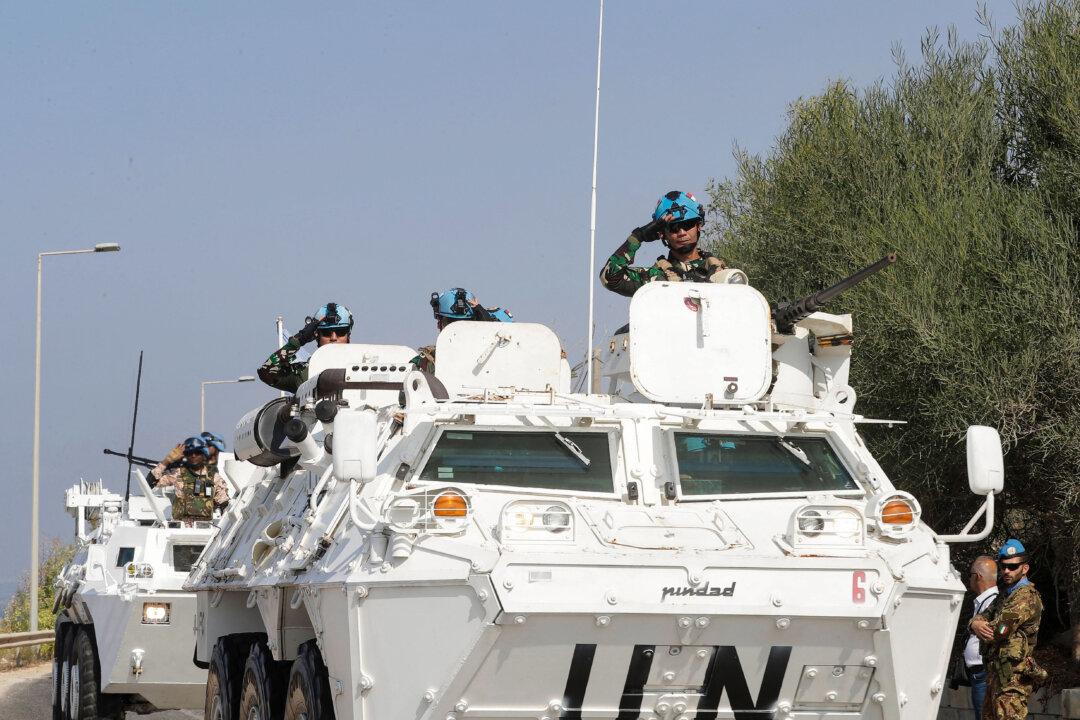The U.N. Interim Force in Lebanon (UNIFIL) has warned of “very serious risks” for its mission after explosions wounded two peacekeepers near the Lebanon–Israel border, the second such incident in two days.
Israel and the Hezbollah terrorist group have been exchanging fire along the border since October 2023. The clash intensified over the past week as Israel pounded the Iran-backed group’s stronghold in the southern suburbs of Beirut in several rounds of targeted airstrikes, killing high-ranking commanders and destroying weapons stockpiles and rocket launchers.





